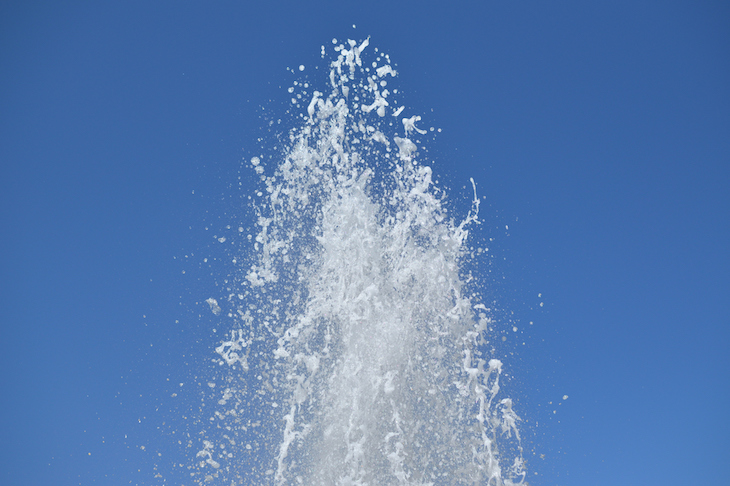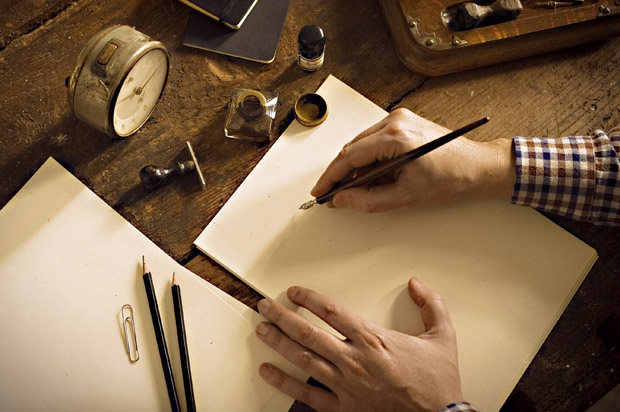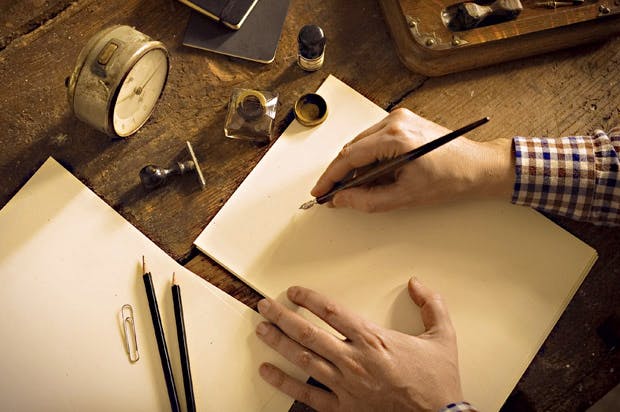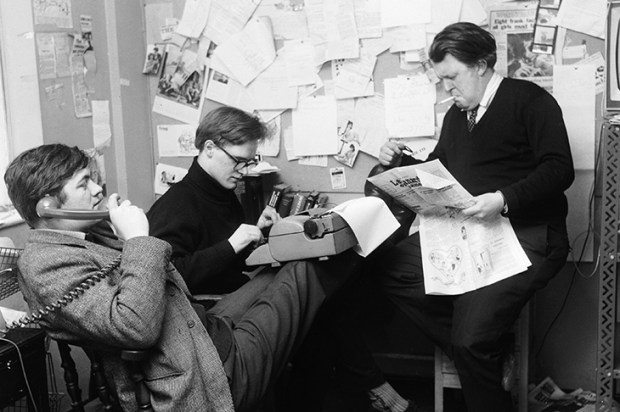‘It’s always me who gets the worst of it,’ said the Fawn, surveying the wreckage caused by the burst water pipe. I did not disagree a) because I would have had my head bitten off and b) because it’s true.
Though I wouldn’t say I was completely useless: who was the first to spot the water gushing through the ceiling of the guest bedroom, eh? And who was the first to find the stopcock using the time-honoured method of running up and down the stairs for ten minutes screaming: ‘Where the hell is the stopcock?’ But it’s probably fair to say that the Fawn bore — and continues to bear — the brunt of the crisis.
In theory a burst water pipe ought to be largely in the male domain. But once you’ve got the man stuff out of the way — move furniture, place strategic buckets, call a plumber and find he can’t come for three days — the aftermath is pretty much woman’s territory.
I’m thinking of the business of dealing with the mounds of accumulated sodden linen, plus a weekend’s worth of unwashed clothes; drying the mattresses; airing the rooms; running a household with a crap husband and two useless teenagers when there’s no mains water.
For a whole weekend we involuntarily conducted one of those TV-style experiments — the Elizabethan family — in which we had to survive without being able to flush the bogs or wash the dishes or fill the kettle except using water laboriously collected in buckets from our neighbour’s outside tap.
This is how it would have been for almost everyone who lived prior to the 20th century. The first flushing toilet wasn’t invented till 1596 — but you only got to use it if you were Queen Elizabeth I. Even the White House didn’t get running water till 1833. Throughout the Victorian era, washstands remained the norm. It wasn’t until the 1900s that individual houses routinely had running water.
Can you imagine how tedious it would be having to fill your baths using a succession of water pots heated on the hob? How inordinately tiresome it would be having to rinse the suds from your linen by hand? When you experience it, it does concentrate the mind. ‘Do I really need to use that extra pot for cooking, knowing how much of a pain it will be to wash afterwards?’ you think to yourself.
But the most important lesson I learned — or rather had reinforced, for I have never really doubted it — during our weekend without water was simply this: women have had it so much worse than men through 99.9 per cent of history. That’s because, inter alia, all the tiresome chores I’ve outlined above would have been done by the womenfolk, while the men were off out doing man stuff like hunting, fighting, roistering, adventuring, speculating, inventing, and bringing home the bacon.
Throughout history, women have complained about the unfairness of this. If I were a woman, I would complain bitterly about this too. (Not least because if I were a woman, I would have been born with the in-built complaining gene that comes with your two X chromosomes.) But viewed from an evolutionary biology perspective, you have to admit that the Creator or Mother Nature knew exactly what they were doing when they thus apportioned our roles. Why have women historically undertaken all the drudgery? Because — though they’ll never admit it — they’re just so much better at it than men. They know that if they didn’t do these vital household tasks, the tasks would either get done late or done badly or not done at all. And none of these options is acceptable if, as most women do, you care about not living in a house surrounded by filth, about whether or not your husband stinks, and about whether or not your children die of food poisoning.
I got a glimpse of these atavistic instincts by observing the behaviour of my children during the crisis. Girl studied the house plumbing plan and researched on the internet to see if there were valves we could use to isolate the broken pipe. Boy, meanwhile, thought it would be a jolly wheeze to collect saucepans of snow — freezing the house as he tramped in and out, leaving the door wide open — and heat them on the Rayburn, as presumably he’d learned from Ray Mears survival documentaries.
As I watched all this, marvelling at the manifest superiority of the female species, my warm glow of pleasure at my womenfolk’s wondrousness gave way to a shudder of fear and cold dread. ‘Dear God,’ I thought to myself. ‘What have we unleashed?’
For millennia, the more dangerous, cunning and capable half of our species have been held in check with endless household chores. Yes, they still do them to a degree. But these chores don’t take up anywhere near as much time and energy as they did before we men foolishly invented all those labour–saving devices to free women from drudgery.
We thought they would love us for it. But they didn’t. It will take more than a century for that hard-wired resentment gene to evolve out of the female system. And now they have time — oh so much time, except when the pipes burst — to devise ever new ways to plot their revenge for all those millennia of injustice. For the sake of humanity it’s not the atom bomb we need to go back in time and un-invent: rather it’s the Hoover, the dishwasher and the washing machine.
Got something to add? Join the discussion and comment below.
Get 10 issues for just $10
Subscribe to The Spectator Australia today for the next 10 magazine issues, plus full online access, for just $10.
You might disagree with half of it, but you’ll enjoy reading all of it. Try your first month for free, then just $2 a week for the remainder of your first year.















Comments
Don't miss out
Join the conversation with other Spectator Australia readers. Subscribe to leave a comment.
SUBSCRIBEAlready a subscriber? Log in